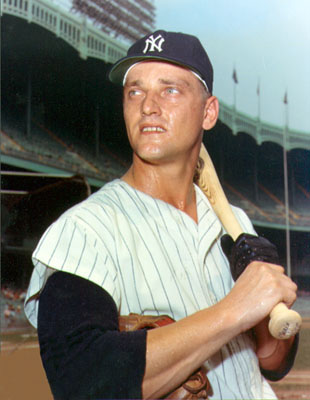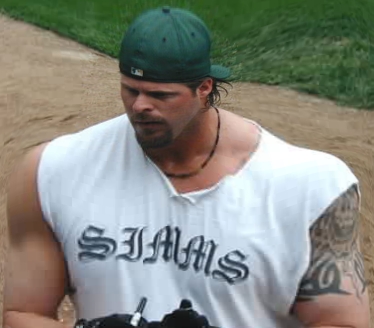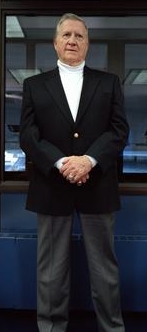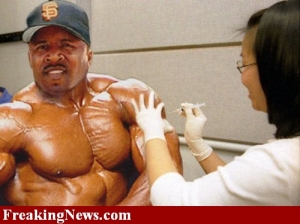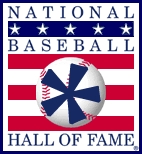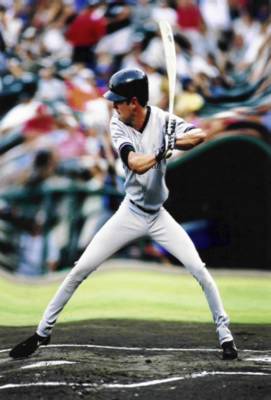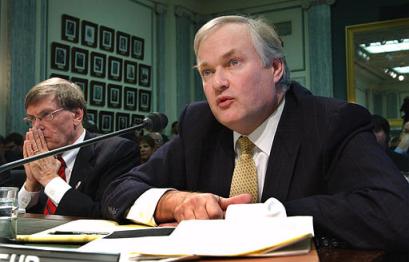Travis Nelson's 2005 Philadelphia Phillies Preview
Maybe it's a little early for this, but what the heck. I live on the edge.
With the Philadelphia Eagles just about to face the New England Patriots for the championship of their league (soccer, I think), it naturally begs the question:
"By how much will they lose?"
Because, let's face it: This is still Philadelphia, a town whose teams have a worse reputation for choking than Latrell Sprewell. Players who buckle under the pressure like soda cans in a recycling plant. Managers and front office personnel who screw up more often that the old Twister ride at Six Flags Great Adventure.
And that reality begs the question:
"What should we expect from the 2005 Phillies?"
I mean, besides disappointment.
Sure, we're still a month from pitchers and catchers reporting, but a quick glance of the Phillies current roster tells me that there's not a lot thy'll be able to do before Opening Day. They may make a minor change, a small-name trade or a minor league free agent or something, but the roster is largely set for this year. Let's take a look.
Starting Lineup
1 Jimmy Rollins, SS
2 Chase Utley, 2B
3 Bobby Abreu, RF
4 Jim Thome, 1B
5 Pat Burrell, LF
6 Mike Lieberthal, C
7 Marlon Byrd, CF
8 David Bell, 3B
9 Pitcher
#1) Personally, I don't much care for
Jimmy Rollins as a leadoff hitter. He strikes out too much, though he did improve significantly in that area last year, whiffing only 73 times after three consecutive 100+ K seasons. If he can keep that up, I'll have no cause for complaint here. Rollins doesn't walk as much as I would like either, fewer than 60 times each of the last three seasons, though that isn't terrible if he can keep hitting .290 or more. His impatience (
3.45 pitches/PA marked the second lowest among qualified leadoff hitters in MLB last season) makes him ill-suited to this role, but he's got the speed to get triples and steals, and historically he hits better in the leadoff spot than anywhere else the Phillies have put him, so he's staying.
You could do worse.
#2)
Chase Utley will hopefully get to play a whole seaosn at one position, and in one league, and will be permitted to rack up 600 plate appearances. If he does that, look for something like .270 with 25 homers. He doesn't walk a lot, but doesn't strike out a ton either, and should be a productive hitter for the Phillies for some time, if not the second coming of
Jeff Kent. His defense is probably better than you've heard as well, since the unstability of his playing situations cannot have been helpful. If he falters, Placido Polanco's capable hands, and bat, will be waiting to pick up the slack at 2B and the #2 hole.
#3) Will someone,
anyone, please go out to Citizen's bank Park and take a look at the guy patrolling right field in the top halves of the innings? Someone who has a bigger audience than me (not that it would take much), please?
You see, there's this guy,
Bob. I know, "Bob" sounds like such a boring, unassuming name. Not like "Jake" or "Hank" or something really impressive like "Colt". And I suppose Bob is pretty boring and unassuming. He's so damn boring, in fact than all he's done, for the last six years in a row, is hit at least 20 homers and 35 doubles, steal at least 22 bases, walk 100 times or more, score 99 runs or more, and play good defense. Since 1998, he has failed to hit .300 only once (.289 in 2001) and he more than compensated with 36 steals and 83 extra-base hits. Last year, he his 30 homers and stole 40 bases, the only 30-30 man in Phillies history, and he's done it twice. This is truly the greatest player nobody knows in today's game, and there's no reason to think either of those things will change in 2005.
#4) Firstbaseman and cleanup hitter
Jim Thome, while not quite the player he had been in 2002, was still a great investment in 2003 and 2004. He led the senior circuit with 47 homers in 2003, and hit another 42 in 2004, good for fifth place. He still walks a lot, hits for decent average and tremendous power, accompanied, of course, by piles and piles of strikeouts. For Thome, though, that's not such a big deal. By the time he's at-bat, the pitcher's repetiore has already been seen, and he's trying to drive in runs, so striking out is better than hitting into a double play. And if he has to give up 10 homers to shave 30 K's off his season, it's not worth it. Expect Jim to scontinue to swing away in 2005, pounding his way toward 500 homers and a plaque in Cooperstown.
#5)
Pat "The Bat" Burrell, besides having one of the dumbest and least creative nicknames in the history of organized American sport (not his fault), is an enigma. He bounced back considerably from a miserable 2003 campaign that saw him lose 73 points in batting average and 16 homers from his 2002 numbers. Three of his five seasons have seen him hit between .257 and .260 (how's that for consistency?), while the .282 and .209 he put up in 2002 and '03 look like flukes, both. Like Thome, he's got tremendous strikeout totals, along with the homers, to a lesser extent, but unlike Thome he's still relatively young. At 28, he should be coming into his prime, and may gain a little batting average this year. Without Larry Bowa ranting and raving at every strikeout, look for Burrell to put up something like a .275/35/100 season in 2005. With 180 strikeouts.
#6)
Mike Lieberthal is what he is: A good, but not great-hitting catcher who doesn't give you a lot of anything, but gives you enough of everything that you can rely on him. Leiberthal can typically be penciled in for 130 games, 15 homers and a .270 average, with just enough walks to keep him
above A.J. Pierzynski on most lists. He's not young though, as most catchers start to decline around age 33 or so, and his backup, Tank Pratt, is really, really not young, at 37. Between them, though, the Phillies will likely still have a catching tandem better than two thirds of the teams in MLB.
#7)
"Put me in, coach! I'm ready to play today!" Apparently Larry Bowa was not a fan of John Fogerty. Or Marlon Byrd. For all the pleas made to him by Byrd, Bowa simply would not allow his young centerfielder to play. Jason Michaels proved a serviceable replacement, but being demoted for Doug Glanville is not a good way to solidify your status as a player. Even after returning from the June demotion to AAA, Byrd never did anything to prove that he belonged with the big league club, though he wasn't given a very long leash either. At 27, he'd better hope that Bowa was the
only reason for his problems, and that Charlie Manuel can bring out the best in him. His platoon partner/competition, Kenny Lofton, is on the decline side of his career, and shouldn't be a regular on a team that wants to win its division.
If Byrd doesn't shape up, this is the easiest place to upgrade during the season, as they'll have neither a big salary nor a big ego to dispose of in order to get some production out of this spot in the lineup. Some noncontending team will likely have a proven producer available before the trade deadline. The Phillies have prospects to burn if they need to make a trade, but I'll get to them later.
#8) Even though
3B David Bell batted in the #5-#7 holes almost all of 2004, I have him slated for the #8 hole because I expect him to "earn" that slot before the year is out. The .291/.363/.458 line he put up last year was 30-60 points higher than his career averages in every category, and at age 32, it's rare that a player suddenly leans to hit better, especially when his "better" is only mediocre to begin with. In 2005, look for David Bell to regress to the .260/.320/.400 line that is consummate with his career numbers, and to once again make the Phillies' front office look foolish for giving him that
4-year, $17M contract. Thankfully, the Phillies have super-sub Placido Polanco, who is more than capable of playing every day if Bell should return to the tank from whence he emerged after the 2002 season.
Bench
C Todd Pratt
1B Ryan Howard
IF Tomas Perez
IF Placido Polanco
OF Jason Michaels
OF Kenny Lofton
Pratt and Lofton, as I emntioned earlier, are both old, but still serviceable backups. If either one of them gets more than 200 at-bats for the Phillies next year, it will not be a good thing. Jason Michaels is also a capable fill-in at any of the outfield spots, though without the talent of any of the Phillies' starters. Tomas Perez is nothing special. He doesn't hit a lick, but he's a decent defensive replacement at any spot in the infield, so they keep him around. Thankfully, Placido Polanco gets the bulk of any infield backup time, and considering that he's as good a hitter as three of their starting infielders, the Phillies have got themselves one heck of a player off the bench.
The really interesting member of this bench is firstnbaseman Ryan Howard. I expect that if he's with the big club, Howard will get first dibs at 1B/DH duties during any interleague games. After winning a Florida State League MVP in 2003, and hitting .290/.379/.632 last year at three levels, Howard has little left to prove in the minors. On the other hand, his 48 homers and 136 RBI were accompanied by 179 strikeouts as well, and he doesn't walk as much as someone like Adam Dunn or Jim Thome. The Phils have tried to help him learn to play a little in left field, but he's got only average defensive skills at best and doesn't run, so his future is as a firstbaseman, not an outfielder or a 3B.
Ryan's 24 now, and they may send him back to AAA, where he played only 29 games last year, to make sure he's ready, but then they'll
have to trade him, as Thome's signed for another four years and $55 million. The Phillies would be wise to trade him sooner rather than later, in case he struggles a little in AAA to start the season and his stock falls. At this point though, they're not sure what they'll need, and they've deemed him "Untouchable", which is transparently false, given that they have nowhere to play him. If they still need a regular centerfielder in mid-season, this is the chip they'll use.
Starting Rotation
1 Randy Wolf (2)
2 Vicente Padilla (2)
3 Jon Leiber (0)
4 Cory Lidle (1)
5 Brett Myers (0)
Yikes. The numbers in parenthesis after their names are how many seasons, out of the last three, they've pitched 200 or more innings in the majors. Every one has failed to be a "workhorse" in at least one season from 2002-2004, due to injuries, ineffectiveness, or both. For
Padilla and
Wolf, the problem was just this past year, and Wolf was injured in 2001 as well.
Jon Lieber, despite what is generally considered a successful return from
Tommy John surgery with the Yankees in 2004, has not racked up 200 innings in the majors since 2001.
Cory Lidle racked up 200+ innings for the first time in his career in 2004, but remains a decidedly-mediocre, LAIM (
League
Average
Innings
Munching) pitcher. Brett Myers has
never done it, though that's mostly due to his youth. (With his time in AA he did pitch exactly 200 innings total in 2002.)
I'll be very surprised to see more than two of these guys pitch 200+ effective innings in 2005. Rookie
Gavin Floyd or sophomore
Ryan Madson stand to see the bulk og the spot-starting role if one or more of the above should go down with an injury or just plain suck.
Which brings us too...
Relief Pitching
LHP Billy Wagner
RHP Tim Worrell
RHP Ryan Madson
LHP Rheal Cormier
RHP Terry Adams
RHP Amaury Telemaco
This is a category in which the 2005 Phillies should be quite strong. A healthy Billy Wagner is still one of the best relief pitchers in baseball, and Tim Worrell is an experienced, capable backup in the closer role, when he's not setting up Wagner. Telemaco and Adams are decent if unspectacular veterans, who can both pitch long relief or even start in a pinch, and Cormier is not just a LOOGY. Geoff Geary, Aaron Fultz and Pedro Liriano should also see some work in 2005, though Liriano is likely to spend most of the season in
Scranton, as he has fewer than 60 innings experience above AA in his career.
Ryan Madson was great in his first full season in the majors, and might even have gained some Rookie of the Year support if he hadn't missed a month and a half with a fluke hand injury. With the starters' injury histories, I expect Madson to get at least a dozen starts throughout the year. Hopefully most of them will be in Lidle's stead.
Manager
Charlie Manuel has only two and a half years of experience, but he was successful with a similar team in Cleveland. The 2000-2001 Indians had a strong lineup, with Kenny Lofton, Omar Vizquel, Jim Thome, Roberto Alomar, Travis Fryman, Manny Ramirez and/or Juan Gonzales all still in thier primes. Their bench was solid as well, with a young Richie Sexson, Russ Branyan, and old but still effective Davids Justice and Segui. The relief corps was solid both seasons as well, but the starting rotation had some holes in it. So it would appear that Manuel has some idea what to do with such a team, as he won 90+ games both years, albeit in a weak division.
So, what have we got? Well, we've got a strong, deep bullpen and bench. We've got a starting lineup that might lead the NL in strikeouts, but might also lead it in non-Coors runs scored. We've got a starting rotation that is talented but injury-prone, with a couple of serviceable backups. We've got a manager who's a nice change from
Old Smoky wearing a path in the bullpen floor.
We've also got a division that's ripe for the taking. The Mets' made a lot of noisy off-season moves, which may improve them, but they're still not going to contend. Florida's going to be good, but they're certainly not a lock to run away with this division.
Then there's the Braves. I know, I know...I'm an idiot to pick against Atlanta. They've got a streak of 247 consecutive division titles and they're still the team to beat, and they are. On the other hand, theiur starting pitching gets really thin after Tim Hudson, and moving John Smoltz into it weakens the staff in two places. The bullpen isn't the worst in the majors, but nobody out there is particularly impressive or a good bet to significantly improve.
Another problem is that I just don't see how their lineup will improve much. They were only fifth in the NL in runs scored last year, but they needed uncharacteristically good years from Johnny Estrada, Charles Thomas and Eli Marerro, not to mention a career year from J.D. Drew, just to get there. Full, healthy seasons from Chipper Jones and Marcus Giles will help a little, but not enough to make up for losing their best hitter. Thomas, Marerro and Drew are now gone, with Raul Mondesi and (Yuk) Brian Jordan taking thier at-bats. Expect Chipper Jones to return to the outfield full time, expect rookie 3B Andy Marte to struggle mightily, and expect the Phillies to contend for the division title, even (Dare I say? Dare! Dare!) to win it, if their pitching holds together.
If.




